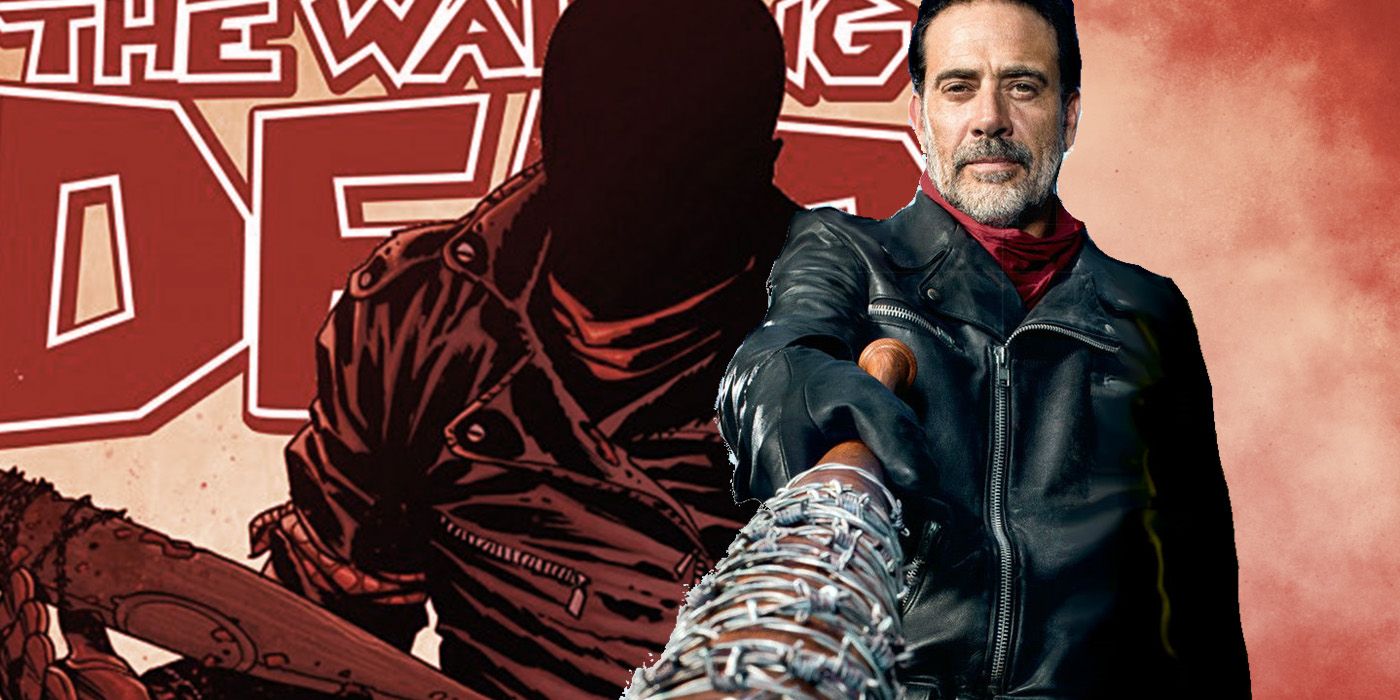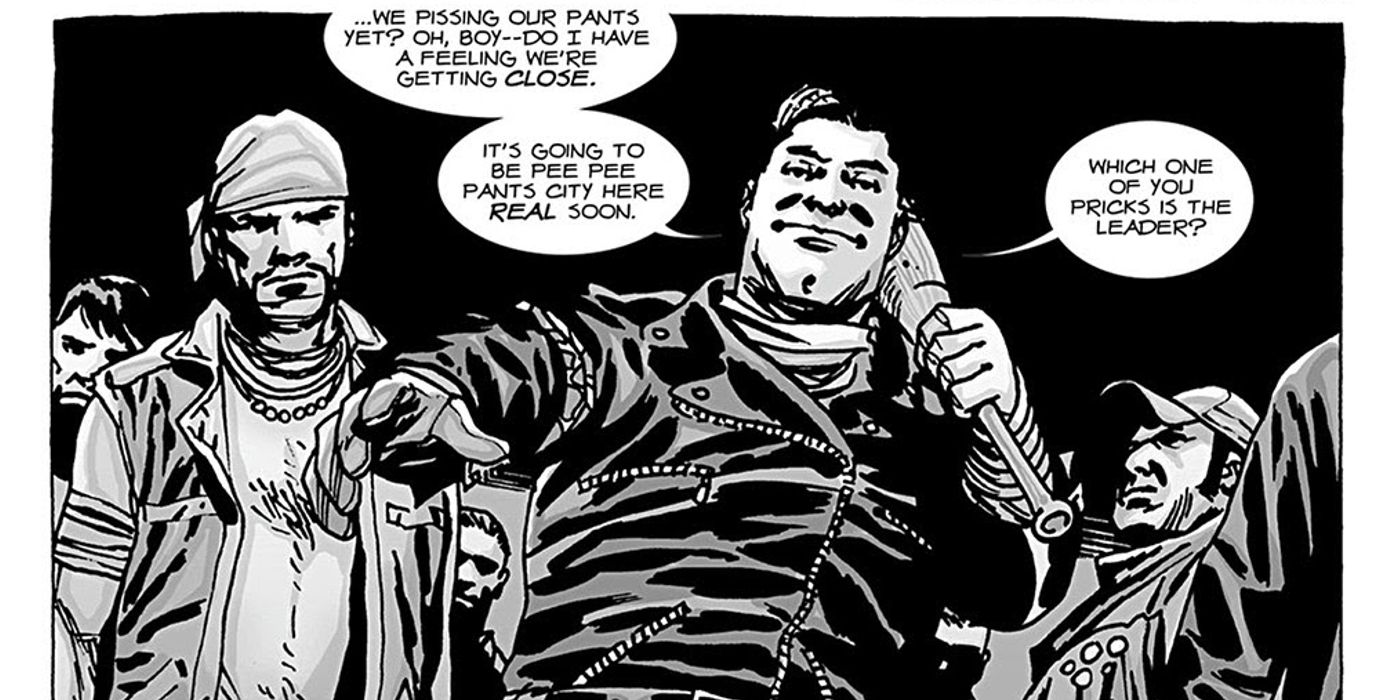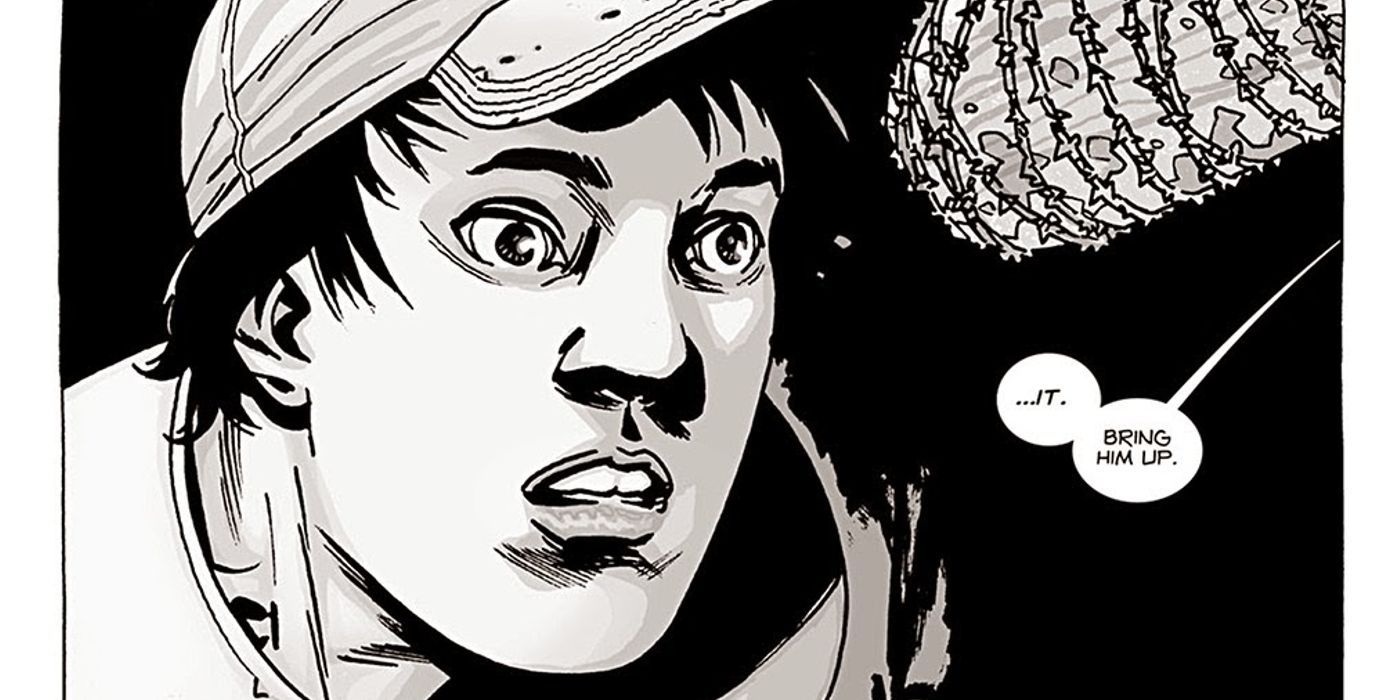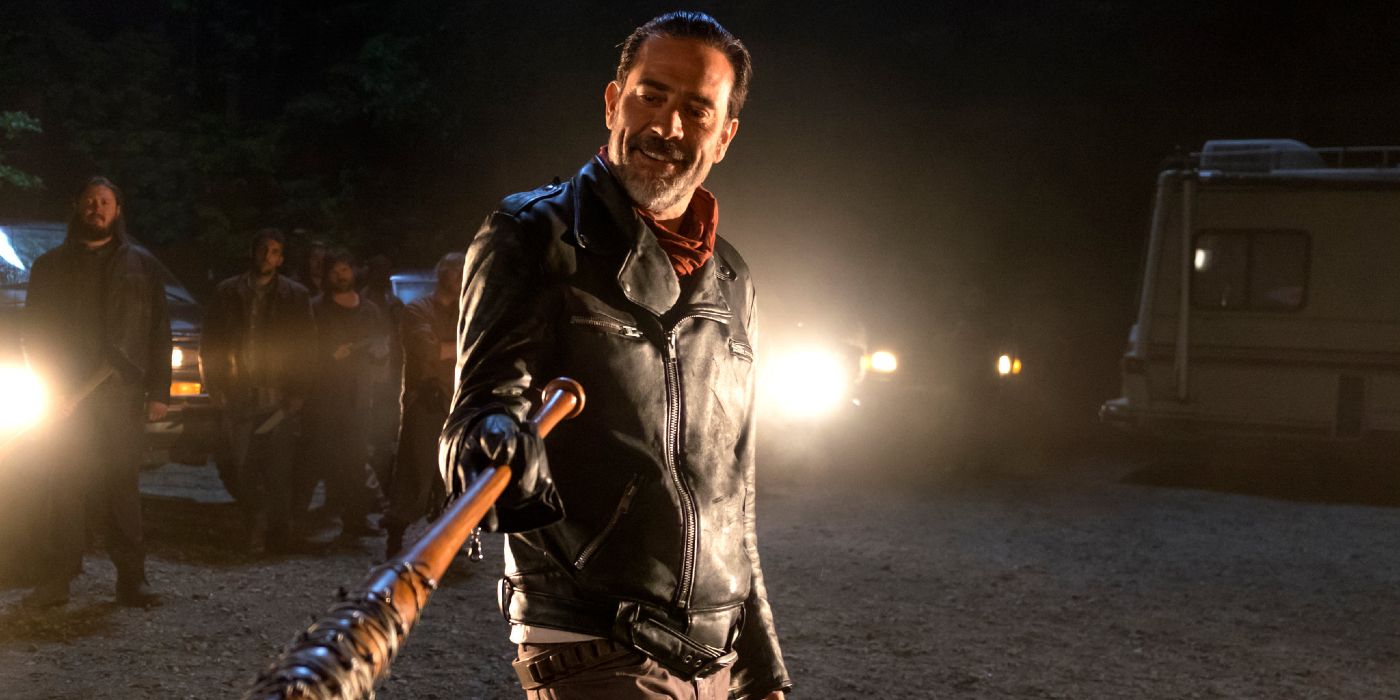This article is part of CBR's 31 Days of Halloween Event. Read the rest here!
From the very beginning of Robert Kirkman, Tony Moore, and Charlie Adlard's The Walking Dead back in 2003, fans have been completely enamored and awe struck by the dark, desolate, zombie-infested world the franchise has to offer. Unsurprisingly, The Walking Dead was always as much about the monsters lurking among man as it was about the dangers of its eponymous flesh eating ghouls.
Although the original comic book series was always home to all manner of malicious figures, there are none that made quite as much of an impact as Negan. In fact, Negan's introductory issue, 2012's The Walking Dead #100, immediately became one of the most infamous comic books of its era. While the villain himself played the biggest role in that, it wasn't actually Negan's debut that left readers so shocked. Rather, it was another iconic character's untimely exit from the series that cemented the issue's place in pop culture and, more importantly, as an indelible moment in horror history.
How The Walking Dead's Negan Shifted the Series' Tone
At the point in which Negan stepped into the world of The Walking Dead, his band of survivors known as the Saviors were already a well known threat to the community led by series' protagonist Rick Grimes. When Rick and his fellow survivors began a trading relationship with one of the other D.C. settlements, they were besieged by the Saviors, who demanded tithes from the other groups of half of their supplies. This obviously wasn't something that anyone was going to go along with willingly, and so Negan and his Saviors employed exceedingly brutal methods to ensure that there would be no resistance.
Prior to the introduction of the Saviors, The Walking Dead had already seen numerous groups of malicious survivors rise and fall before them. Similarly, prior to the introduction of Negan, The Walking Dead had already encountered one cartoonishly evil villain in the form of the Governor. That being the case, there was no amount of bloodshed or gore that Negan or the Saviors could offer that was ever going to surprise fans. What they could do, on the other hand, was embrace their place in their world in a way that no other villains had up until that point in the series. Whereas the Governor was always playing a part and other menacing figures were driven by desperation, Negan and the Saviors relished the death and destruction they dolled out like no one else before or after them.
Why Negan was The Walking Dead's Worst Villain - And Best Development
It was in Negan's first appearance that he randomly selected fan-favorite character Glenn to be made an example of for the rest of the series' protagonists. With his barbed wire adorned baseball bat named Lucille, Negan delivered a series of strikes to Glenn's face and head that no one could have possibly survived. In between blows, fans got to witness a brutally disfigured Glenn crying out for his love Maggie, all while Rick and the others were forced to watch. As bad as all of that was, Negan's incessant joking during and after Glenn's murder added a gut-wrenching sense of horror that simply hadn't been present in The Walking Dead prior to that moment.
This isn't to say that other villains before Negan hadn't been equally malicious or cringe inducing, nor that the deaths prior to Glenn's hadn't been profoundly upsetting or moving for readers. Rather, the horror that The Walking Dead exuded ahead of its hundredth issue was always tinged with a sense of humanity, even if it was twisted and broken. From the Governor before him to the likes of Pamela and Sebastian Milton after him, every villain besides Negan had something they very clearly wanted. Negan, however, was given multiple opportunities to take what he had built with the Saviors and live in it peacefully and without want for what might have been the rest of his days. Instead of relying on others in any meaningful way, Negan chose to slaughter and maim them. And, with how little the Saviors actually needed what Rick or his friends had to give, it was painfully evident that Negan did so because he genuinely enjoyed it.
Why The Walking Dead #100 is Still So Important
Without the introduction of Negan and the death of Glenn, The Walking Dead wouldn't be what it is today. The series would probably still be a massive success, and the comics probably still would have been adapted for the silver screen, but The Walking Dead as a whole would be missing something. Simply put, The Walking Dead #100 changed everything fans thought they knew about a book where it was already obvious that no one was safe. Between the tragic deaths of characters long since lost such as Tyreese or Rick's wife Lori and their newborn daughter Judith, The Walking Dead was never about sparring anyone from an untimely demise. At the same time, the series never felt as though anything that happened within it was out of a sense of malice toward its readers.
At least, that was true until Negan. Once The Walking Dead #100 rolled around, the sense that The Walking Dead and the lives of its characters would be dictated by some sort of logic was eschewed entirely. What took its place was an air of uncertainty that left readers questioning how things could possibly get worse. It wasn't just that Negan had randomly selected Glenn to receive a death the villain enjoyed dispensing, nor that the Saviors were equally enthusiastic about such heinous methods as a group. Instead, it was the idea that there were no longer any obvious rules or guidelines regarding how the world of The Walking Dead worked that shifted the tone of the series so drastically. Other villains could be broken down, and Walkers could always be felled, but Negan's legacy would never be snuffed out, and The Walking Dead #100 left no doubt as to why that was or what it meant for the series' future.




